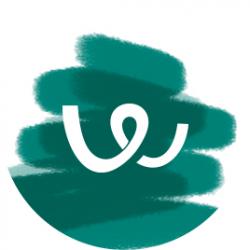Real-life product owner interview questions
A Product Owner plays a pivotal role in Agile teams, ensuring that the product's vision aligns with stakeholders' needs and expectations. Their expertise in prioritizing features and guiding the team is instrumental in delivering value to the end-users.
These product owner interview questions are directly sourced from real hiring managers and they are ready to use.

Make sure that you are interviewing the best product owner candidates. Sign up for Workable’s 15-day free trial to hire better, faster.
8 good product owner interview questions
- Do you think it’s a good idea to have one person performing both the Scrum Product Owner role and the Scrum Master role?
- What product discovery frameworks have you worked with?
- Who do you consider to be the most important product stakeholder?
- How do you prioritize features in a product backlog?
- How do you handle disagreements with stakeholders?
- Describe a time when you had to make a tough decision about a feature or product direction.
- How do you ensure that the development team understands the product’s vision and user needs?
- What metrics do you use to measure product success?
1. Do you think it’s a good idea to have one person performing both the Scrum Product Owner role and the Scrum Master role?
This question gauges the candidate’s understanding of Scrum roles and their distinct responsibilities.
Sample answer:
“While both roles are integral to a Scrum team, they serve different purposes. Combining them can lead to conflicts of interest. The Product Owner focuses on the product’s value, while the Scrum Master ensures the team follows Scrum practices. It’s best to keep them separate to maintain clarity and effectiveness.”
2. What product discovery frameworks have you worked with?
This question assesses the candidate’s familiarity with various product discovery methodologies.
Sample answer:
“I’ve worked with several frameworks, including Design Thinking and Lean Startup. Design Thinking helps empathize with users, while Lean Startup focuses on building MVPs and iterative testing. The choice of framework often depends on the product stage and the specific challenges we’re trying to address.”
3. Who do you consider to be the most important product stakeholder?
This question evaluates the candidate’s stakeholder management skills and understanding.
Sample answer:
“All stakeholders are crucial, but if I had to prioritize, I’d say the end-users. They’re the ones using the product, and their feedback is invaluable. However, it’s essential to balance their needs with business objectives and technical constraints, ensuring a holistic product approach.”
Now, let’s proceed with recommended additional questions to round out the interview:
4. How do you prioritize features in a product backlog?
This question probes the candidate’s decision-making process in feature prioritization.
Sample answer:
“I use a combination of methods, including the MoSCoW method and value vs. effort matrix. Engaging with stakeholders, considering business value, technical feasibility, and user needs helps in making informed decisions.”
5. How do you handle disagreements with stakeholders?
This question assesses the candidate’s conflict resolution and communication skills.
Sample answer:
“Open communication is key. I ensure to understand their perspective, provide data-backed reasoning for my decisions, and find a middle ground. It’s essential to ensure that all decisions align with the product’s overall vision and objectives.”
6. Describe a time when you had to make a tough decision about a feature or product direction.
This question delves into the candidate’s decision-making abilities under pressure.
Sample answer:
“In a previous project, we had to decide between adding a highly requested feature or improving the product’s performance. Given the tight timeline, I chose to enhance performance, ensuring a better user experience. It was tough, but data showed it positively impacted user retention.”
7. How do you ensure that the development team understands the product’s vision and user needs?
This question evaluates the candidate’s communication and collaboration skills.
Sample answer:
“Regular communication is crucial. I conduct product vision workshops, share user feedback, and ensure that user stories are descriptive and clear. Regularly revisiting the product vision and objectives ensures alignment.”
8. What metrics do you use to measure product success?
This question probes the candidate’s understanding of product metrics and their importance.
Sample answer:
“It varies based on the product, but common metrics include user engagement, retention rate, net promoter score, and feature adoption rate. It’s essential to align metrics with business objectives and continuously monitor them.”
What does a good Product Owner candidate look like?
An ideal Product Owner possesses a deep understanding of Agile methodologies, exceptional stakeholder management skills, and a user-centric mindset. They should be adept at making data-driven decisions, have excellent communication skills, and be able to balance user needs with business objectives.
Red flags
Beware of candidates who lack a clear understanding of Agile principles, struggle with stakeholder management, or are resistant to feedback. An inability to prioritize features effectively or a lack of user-centric thinking can also be potential red flags.
